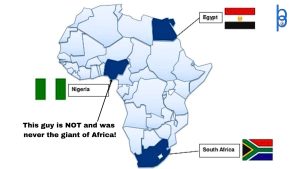
“We believe that no business can thrive in an economy that is characterised as volatile, uncertain, complex, and ambiguous, and that is what the foreign currency-dominated collateral aggravates in the Nigerian economy. So it is a decision that is welcome within the MSME ecosystem.”
One of the measures rolled out by the Central Bank of Nigeria to maintain the value of the naira in the domestic and international markets targeted by the first quarter of 2050 is monitoring the activities of the Bureau De Change operators. The Presidency stated on Tuesday, April 9, that the Central Bank of Nigeria’s coordinated efforts to stabilise the naira, headed by Yemi Cardoso, are consistent with President Bola Tinubu’s “multifaceted approach to ridding the nation’s foreign exchange market of malicious actors and sharp practices.”
On Monday, the naira appreciated to approximately 1,230 per dollar, having declined against the dollar to $1,500 at the official market. The strengthening of the naira against the dollar has been attributed, according to analysts, to the CBN’s recent policies. Prominent reforms include the consolidation of exchange rate windows, the liberalisation of the foreign exchange market, the resolution of forward foreign exchange backlog obligations for banks and airlines, the establishment of a Price Verification System, the imposition of restrictions on banks’ net open positions, the elimination of the daily cap of N2 billion on the advantageous standing deposit facility, and the restructuring of the Bureau De Change division.
According to Ajuri Ngelale, Special Adviser to the President on Media and Publicity, President Tinubu “has been very consistent in his view that the labour pains felt by our people and the incredible sacrifices made by our people over the past 10 months would be rewarded across the board.” He further established that “the President’s multi-faceted approach to ridding the nation’s foreign exchange market of malign actors and sharp practices has provided a platform for the sustainable strengthening of our national currency against all global currencies, and this is what we are seeing. However, there remains significant work ahead, and this is not a moment for celebration. It is a time for doubling down and working harder to ensure that inflation is sustainably brought down in short order and that consumer-protective regulatory agencies step up enforcement to ensure that our people are not short-changed by enterprises that fail to reflect the prevailing exchange rates on the pricing of goods and services across the board,” he stated.
The floating of the naira in the Investors & Exporters FX window exacerbated the cost of living crisis. In February 2024, the local currency suffered an all-time low in value, exchanging for N1,900/$. At the start of the administration, it was exchanged for about N800. However, the naira has recently seen a steady gain against the US dollar, exchanging N1,200/$.
More so, the CBN, in an effort to rectify distortions in the retail segment of Nigeria’s foreign exchange market and bridge the widening gap in the exchange rate, began the sale of FOREX to BDC operators at lower rates. In March, the apex bank sold $10,000 to BDCs at a rate of N1,251/$ and directed the BDCs to sell to eligible customers at a rate not exceeding 1.5 percent above the purchase price (N1,269/$1). In April, it sold $10,000 to each BDC at N1101/$ and directed the operators to sell at a spread not more than 1.5 percent above the CBN rate.
Additionally, on April 8, 2024, the CBN instructed all eligible BDCs to initiate the transfer of naira deposits into the designated CBN accounts. The investigation of entities whose activities the CBN deems to be undermining the economic reform initiatives of the Tinubu administration is another facet of its operations. Cardoso disclosed at the end of March that security agencies, including the Economic and Financial Crimes Commission, were conducting investigations into dubious foreign exchange allocations and forward contracts worth an estimated $2.4 billion at the time. A global firm, Deloitte, was retained by the new CBN administration to conduct an audit of the $7 billion in obligations. Prior to this, Cardoso had stated that approximately $2.4 billion in FX allocations from the $7 billion backlogs were void. Two executives of the international cryptocurrency trading platform Binance were detained and are currently under investigation for tax evasion and other offences when this development occurred.
Within ninety days, beginning on April 8, 2024, the CBN ordered all Nigerian institutions to cease using foreign currencies as collateral for naira loans. BSD/DIR/PUB/LAB/017/004 referenced the circular titled “The use of foreign-currency-denominated collaterals for naira loans,” in which this information was disclosed. The use of FCY as collateral for naira loans by bank customers has been observed by the regulator, who has consequently issued an immediate prohibition on the practice.
Ngelale reiterated, “But there is still much work to be done, and this is not a time for celebration. We must intensify our efforts to swiftly and sustainably reduce inflation. As our private and publicly owned refineries resume operations between now and the first quarter of 2025, the nation’s cash position will dramatically improve to the extent that Nigerians can rightly expect a stronger Naira and a fair reflection of its strength in the prices of commodities in the market. Once you join the rising spending power of Africa’s largest population with the historic availability of trillions of naira for consumer credit that will bolster the real sector, you will see why Nigerians will be most pleased that they elected a financial engineer and businessman as president by the end of his first term in office, even as the signs are increasingly more evident today.”
Following the reactions from experts, this was agreed to be a welcomed development, not just in improving the value of the naira but also in tackling the challenges encountered by business owners across the country.
By Chidimma NWAFOR






